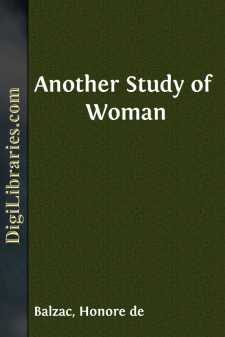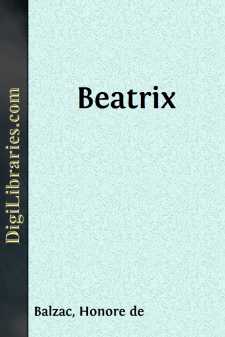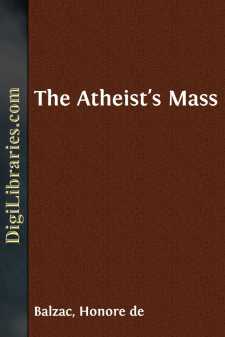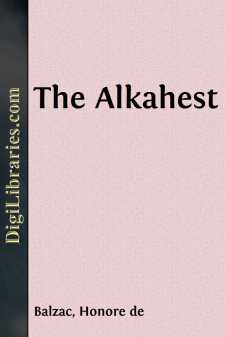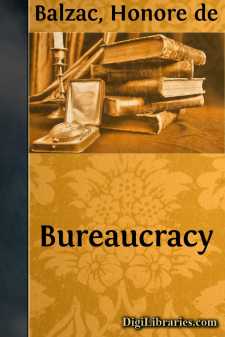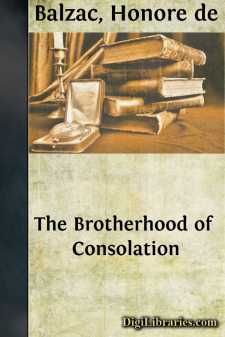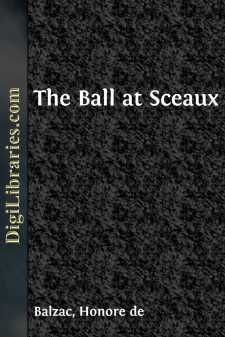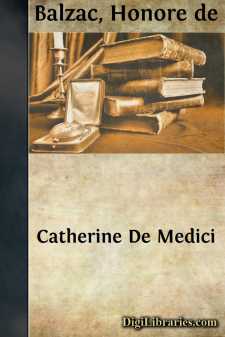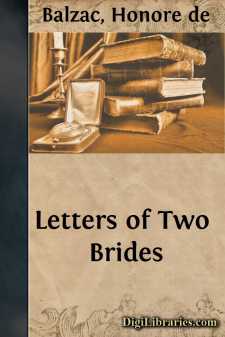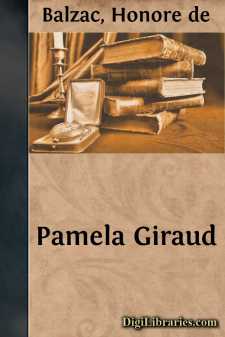Categories
- Antiques & Collectibles 13
- Architecture 36
- Art 48
- Bibles 22
- Biography & Autobiography 813
- Body, Mind & Spirit 142
- Business & Economics 28
- Children's Books 15
- Children's Fiction 12
- Computers 4
- Cooking 94
- Crafts & Hobbies 4
- Drama 346
- Education 46
- Family & Relationships 57
- Fiction 11829
- Games 19
- Gardening 17
- Health & Fitness 34
- History 1377
- House & Home 1
- Humor 147
- Juvenile Fiction 1873
- Juvenile Nonfiction 202
- Language Arts & Disciplines 88
- Law 16
- Literary Collections 686
- Literary Criticism 179
- Mathematics 13
- Medical 41
- Music 40
- Nature 179
- Non-Classifiable 1768
- Performing Arts 7
- Periodicals 1453
- Philosophy 64
- Photography 2
- Poetry 896
- Political Science 203
- Psychology 42
- Reference 154
- Religion 513
- Science 126
- Self-Help 84
- Social Science 81
- Sports & Recreation 34
- Study Aids 3
- Technology & Engineering 59
- Transportation 23
- Travel 463
- True Crime 29
Sort by:
by:
Honore de Balzac
ANOTHER STUDY OF WOMAN At Paris there are almost always two separate parties going on at every ball and rout. First, an official party, composed of the persons invited, a fashionable and much-bored circle. Each one grimaces for his neighbor's eye; most of the younger women are there for one person only; when each woman has assured herself that for that one she is the handsomest woman in the room,...
more...
by:
Honore de Balzac
I. A BRETON TOWN AND MANSION France, especially in Brittany, still possesses certain towns completely outside of the movement which gives to the nineteenth century its peculiar characteristics. For lack of quick and regular communication with Paris, scarcely connected by wretched roads with the sub-prefecture, or the chief city of their own province, these towns regard the new civilization as a...
more...
by:
Honore de Balzac
THE ATHEIST'S MASS Bianchon, a physician to whom science owes a fine system of theoretical physiology, and who, while still young, made himself a celebrity in the medical school of Paris, that central luminary to which European doctors do homage, practised surgery for a long time before he took up medicine. His earliest studies were guided by one of the greatest of French surgeons, the illustrious...
more...
by:
Honore de Balzac
CHAPTER I There is a house at Douai in the rue de Paris, whose aspect, interior arrangements, and details have preserved, to a greater degree than those of other domiciles, the characteristics of the old Flemish buildings, so naively adapted to the patriarchal manners and customs of that excellent land. Before describing this house it may be well, in the interest of other writers, to explain the...
more...
by:
Honore de Balzac
CHAPTER I. THE RABOURDIN HOUSEHOLD In Paris, where men of thought and study bear a certain likeness to one another, living as they do in a common centre, you must have met with several resembling Monsieur Rabourdin, whose acquaintance we are about to make at a moment when he is head of a bureau in one of our most important ministries. At this period he was forty years old, with gray hair of so pleasing...
more...
by:
Honore de Balzac
I. THE MALADY OF THE AGE On a fine evening in the month of September, 1836, a man about thirty years of age was leaning on the parapet of that quay from which a spectator can look up the Seine from the Jardin des Plantes to Notre-Dame, and down, along the vast perspective of the river, to the Louvre. There is not another point of view to compare with it in the capital of ideas. We feel ourselves on the...
more...
by:
Honore de Balzac
THE BALL AT SCEAUX The Comte de Fontaine, head of one of the oldest families in Poitou, had served the Bourbon cause with intelligence and bravery during the war in La Vendee against the Republic. After having escaped all the dangers which threatened the royalist leaders during this stormy period of modern history, he was wont to say in jest, "I am one of the men who gave themselves to be killed on...
more...
by:
Honore de Balzac
INTRODUCTION There is a general cry of paradox when scholars, struck by some historical error, attempt to correct it; but, for whoever studies modern history to its depths, it is plain that historians are privileged liars, who lend their pen to popular beliefs precisely as the newspapers of the day, or most of them, express the opinions of their readers. Historical independence has shown itself much...
more...
by:
Honore de Balzac
I. LOUISE DE CHAULIEU TO RENEE DE MAUCOMBE. PARIS, September. Sweetheart, I too am free! And I am the first too, unless you have written to Blois, at our sweet tryst of letter-writing. Raise those great black eyes of yours, fixed on my opening sentence, and keep this excitement for the letter which shall tell you of my first love. By the way, why always "first?" Is there, I wonder, a second...
more...
by:
Honore de Balzac
ACT I SCENE FIRST (Setting is an attic and workshop of an artificial flower-maker. It ispoorly lighted by means of a candle placed on the work-table. Theceiling slopes abruptly at the back allowing space to conceal a man.On the right is a door, on the left a fireplace. Pamela is discoveredat work, and Joseph Binet is seated near her.) Pamela, Joseph Binet and later Jules Rousseau. PamelaMonsieur Joseph...
more...


